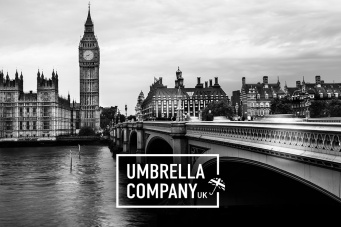
Diversity in broadcast: how has the industry evolved?
This year is different.
Not only have the effects of the COVID-19 pandemic been seismic but the killing of George Floyd and the subsequent spread of the Black Lives Matter movement across the world have raised issues of race, diversity and equality to levels not seen in decades.
Here in the UK, for example, Premier League football resumed with players and staff from four clubs kneeling as their matches began on the first night back following the coronavirus-enforced lockdown. Match officials made the same gesture, and players’ names on shirts were replaced with ‘Black Lives Matter’.
But what of the broadcast industry? Are attitudes changing? As Ofcom stated in their 2019 report, Diversity and equal opportunities in television: “Issues around diversity and protected characteristics are of increasing concern to UK audiences.”
We look back on a lack of diversity in TV over the years to assess where, when and how shifts might happen…
Then…
Lenny Henry
Following six more years without significant positive change, Lenny Henry said in 2014 that money should be used to boost the presence of BAME people in the broadcasting industry.
He made several high-profile speeches emphasising the continuing lack of diversity in TV, appeared before the House of Commons Culture, Media and Sport Committee and guest-edited an edition of BBC Radio 4’s Today to draw attention to the issue.
Also in 2014, the Act for Change campaign was launched to promote the arts for everyone regardless of race, gender, class, sexual orientation, nationality, age or disability, and better reflect British society.
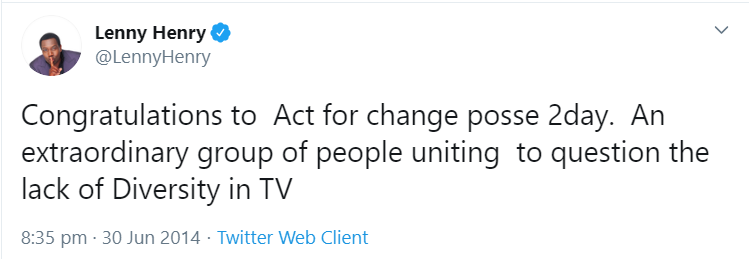
Diversity makes business sense
A year later, at an RTS/BBC debate, ‘Making diversity pay’ – part of the BBC’s ‘Reflect and Represent’ week – panellists agreed that, following years of inaction, broadcasters were “finally making an effort” to boost BAME representation in television.
One of those panellists, Diane Kemp, Professor of Broadcast Journalism at Birmingham City University, argued that the economic case for diversity is proven:
“What is the cost if you don’t have diversity at the heart of what you do?” she asked. Without diversity, she said:
The British industry was also losing production talent:
Channel 4 sought to tackle the lack of diversity in the industry through its 360° Diversity Charter.
Better BAME representation on TV is the product of greater BAME inclusion within TV and its workforce.
Idris Elba
In 2016, Idris Elba addressed Parliament
about the need for greater on-screen diversity and representation.
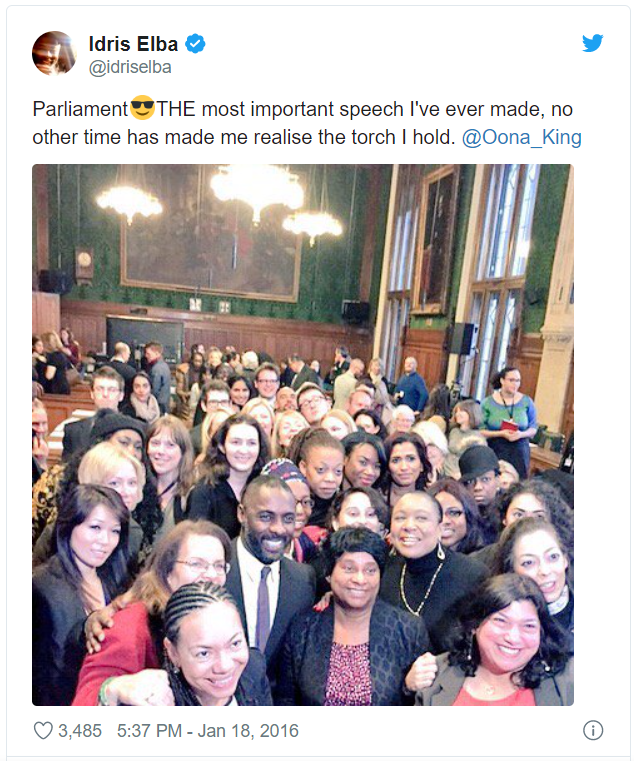
Through 2018 and 2019, little changed.
Diversity UK, in September 2018, reported that BAME directors were still poorly represented in UK TV.
Sir Lenny Henry believes there will never be diversity in British media unless legislators are “brave enough” to make it mandatory.
Equity, the union of almost 50,000 performers and creative practitioners, published a report in April 2020 having monitored ethnic diversity in UK mainstream media in 2018. Equity’s Race Equality Committee commissioned research which found that ethnic minorities were under-represented in peak-time scripted programming. East Asian and Middle Eastern actors were most affected, while depictions of African-Caribbean and south Asian characters continued to reinforce stereotypes.
While broadcasters are, according to Ofcom’s 2019 report Diversity and equal opportunities in television, evaluating their progress, Ian Manborde, Equity’s equalities and diversities officer, said: “Ofcom has repeatedly stated in their own research broadcasters must improve their strategies to achieve diverse portrayal, as well as mechanisms to monitor their on-screen and off-screen workforce.”
Ofcom also found through their report that:
- Disabled people remain under-represented, with no improvement since last year.
- Minority ethnic representation at senior management levels shows only a slight increase.
- Gender balance remains a challenge, but there has been slight improvement in senior positions.
Now…
That brings us up to date. And now, in June 2020, the same questions are asked and the same concerns are voiced.
Other bodies are lending their voices to the wider campaign. Rise, the advocate group for gender diversity within the broadcast manufacturing and services sector, launched its third annual mentoring scheme in February to 20 participants across operations, engineering, sales, marketing and business.
And Lenny Henry is still campaigning.
Now 61, the comedian and actor has teamed up with Professor Kemp.
The Sir Lenny Henry Centre for Media Diversity is a new research centre bringing together the expertise of established media professionals and academics, including Professor Kemp, the centre’s director, who stated its – and the industry’s – fundamental challenge in a launch video released in March:
How can the UK media industry become more diverse in terms of its workforce and, therefore, its output?
The future…
Channel 4 has committed to a new six-point pledge to be an anti-racist organisation and improve black and minority ethnic representation on- and off-screen.
That commitment followed the broadcaster’s commissioning of a series of short and longer-form films from black British filmmakers about their response to the killing of George Floyd and the subsequent events.
The BBC’s director of creative diversity June Sarpong, meanwhile, “has committed to hardwire diversity and inclusion throughout the BBC”.
Diversity and inclusion were already declared “a top priority” in the corporation’s latest annual report, published last month.
- Frame 25 is an equal opportunities employer and committed to diversity. This means all job applicants and members of staff receive equal treatment and we will not discriminate on grounds of gender, marital status, race, ethnic origin, colour, nationality, national origin, disability, sexual orientation, religion or age.
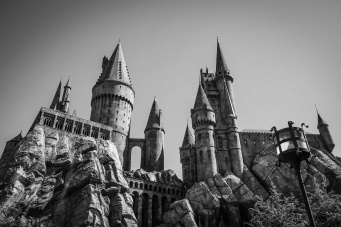
Netflix, Paramount and Warner Bros.: What the Deal Means for the Broadcast and Production Industry
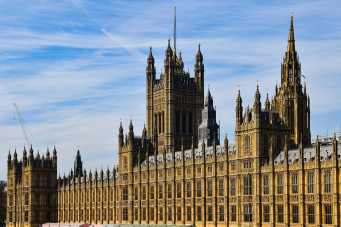
How the Employment Rights Act 2025 Is Reshaping the Freelance Market
